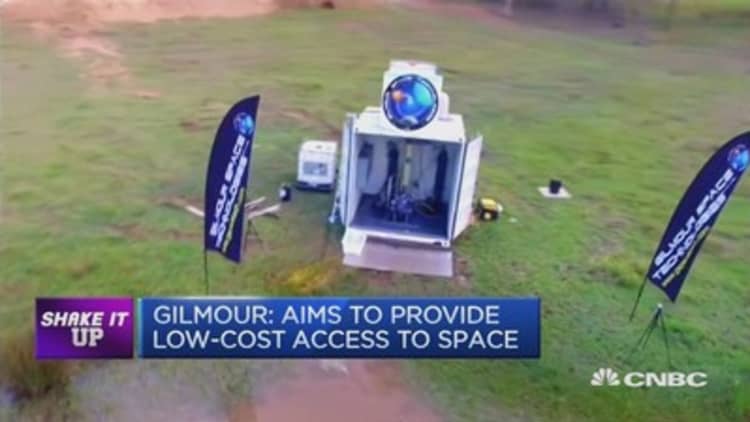TOKYO —The small satellite revolution sparked by Elon Musk and others has created a need for more viable options for sending massive amounts of data back to Earth.
An industry now estimated at $260.5 billion, this niche satellite market is set for more rapid growth as SpaceX, Boeing and Oneweb all plan huge constellations. Thousands of cube- and microsatellite launches are also scheduled over the next six years. Recognizing the trend, a Japanese start-up called Infostellar has plans to disrupt the status quo.
Infostellar is an Airbnb for satellite antennas. It has a platform that enables antenna-sharing among satellite operators to improve communication for satellites and spacecraft. The idea is to monetize unused inventory when it's lying idle. That is key, since a single antenna only has short conversation windows with a non-geostationary — low-Earth-orbit — satellite per day.
Overcoming the high costs and limited access times associated with ground antenna has such great potential that Japan's Infostellar raised $7.3 million in Series A funding led by Airbus Ventures in September. Other investors included WERU Investment, D4V, Sony Innovation Fund and existing investors FreakOut Holdings and 500 Startups Japan.
According to Infostellar co-founder and CEO Naomi Kurahara, the Infostellar service is currently in pre-launch, but a limited beta with a handful of selected partners will open in October. The goal is to make it widely available in 2018.

Kurahara, a satellite ground systems engineer and graduate of France's International Space University, predicts that by 2020, 5,000 satellites from a variety of companies will be in operation. There are currently estimated to be 1,459. Saying she targets contracts with 30 percent to 40 percent of these operators, the CEO expects annual revenue will soar: "We hope to get $200 million to $500 million."
Disrupting an industry
Kurahara expects to reduce the cost of satellite communication time by 90 percent. According to the CEO, ground-station access typically costs $500 for 10 minutes.
Infostellar's cloud-based Stellarstation system will connect operators to antenna around the world. The platform will also enable member ground stations to use other locations in the network.
The idea is new for the sector, where satellite ground stations are often owned and maintained by a single operator tasked with tracking a spacecraft for a short time each day.
More from CNBC Disruptor 50:
China's blueprint to crush the US robotics industry
Investors pour billions into commercial space start-ups
Elon Musk is rushing to beat NASA to Mars
"Each station requires regulatory approval in that respective country. Someone would have to host that antenna, someone would have to maintain it, provide the infrastructure, supply it power, supply it connectivity, so that can be expensive," explained David Luber, an expert in satellite spectrum management with Aerospace Corp.
Kurahara said expanding the network is a priority and things are starting to move fast. Atlanta-based Spaceworks, an aerospace concept design and systems analysis firm, forecasts nearly 2,400 nano- and microsatellites will be launched up to 2023. All of which will need infrastructure and systems to communicate with Earth.
The firm's Nano/Microsatellite Market Forecast 2017 predicts Earth observation and remote-sensing craft will make up 63 percent of those launches until 2019. These figures are good news for Infostellar, as satellite constellation operators are the company's main targets.
"The more satellites you have up there, the more data you gather, the more you are going to need information and data management," said Phil Smith, senior space analyst with Alexandria, Virginia-based Bryce Space and Technology. "The ground component of that is really critical to keep track, to monitor and to gather data from these satellites in an efficient manner."
CEO Kurahara provided some context: "If I have one antenna in Japan, I only get about 30 minutes communication time per day for one satellite." She continued, "And the rest of the time, it is not working.
"That's why satellite operators are looking for antennas in different places."
Correction: This story has been updated to reflect that Infostellar predicts 5,000 satellites from various companies will be in operation by 2020.
— By Julian Littler, special to CNBC.com







